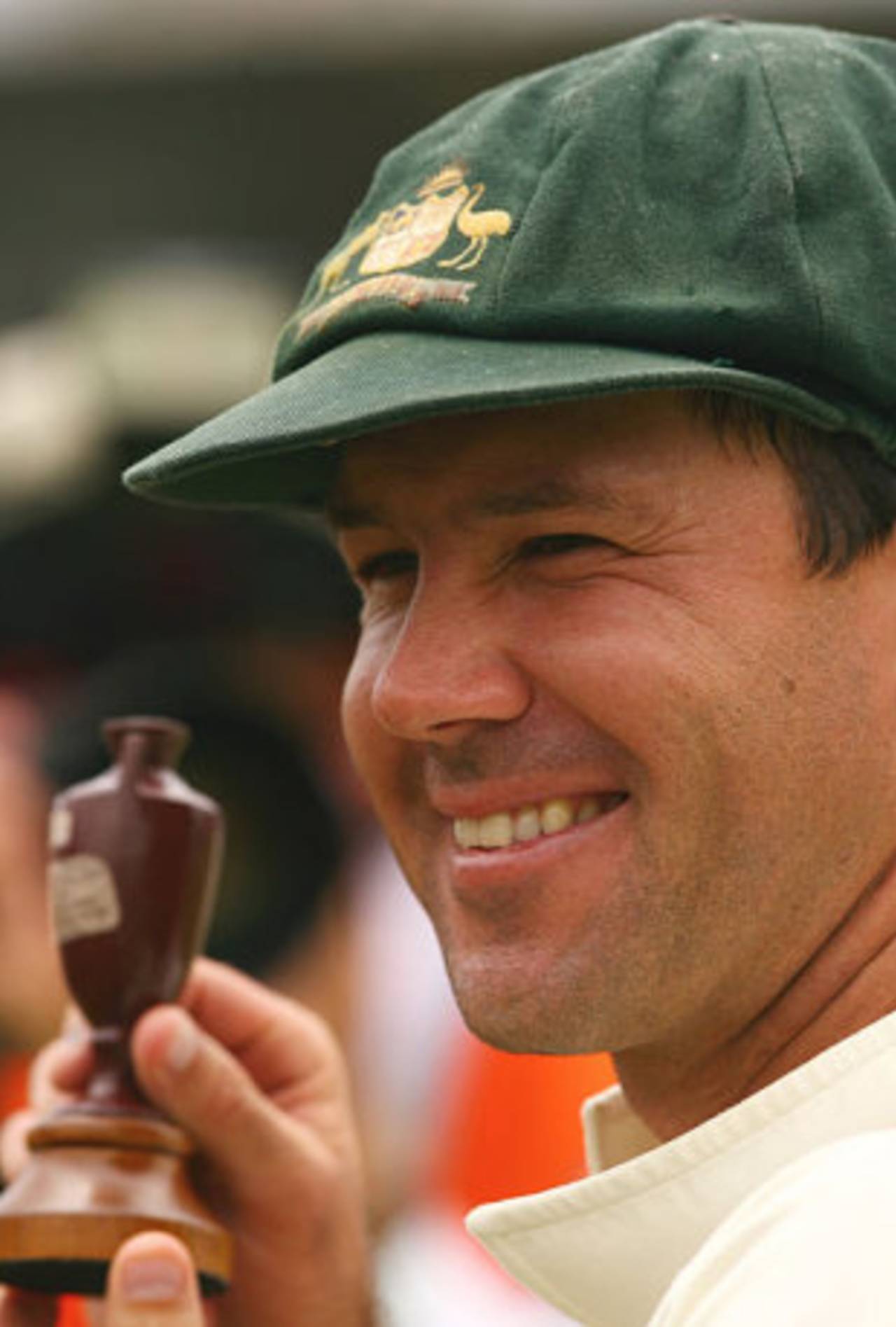Until Colin Cowdrey reached the mark in 1968, no cricketer had played 100 Test matches. It is both a measure of Australia's success and the vast expansion of the game's scheduling ever since that
Ricky Ponting now stands above all others, the first man to have played in
100 Test victories.
Of all Ponting's achievements, this will sit near the top as a source of satisfaction whenever he ends his career. Personal statistics and their associated glory have never held his attention, but for 16 years, Test match wins have been his fundamental goal. For him to know he has participated in 100 of them will cause the familiar grin to emerge on Ponting's face, the grin that has remained boyish through all the series, tours and fluctuations of his time on the big stage.
Ponting
was a boy wonder when he enjoyed his first Test win,
on his debut in December 1995. Also against Sri Lanka, it took place on a Perth pitch as far removed from the dustbowl of Galle as it is possible to be. Sri Lanka were bowled out for 251 on the first day, then Muttiah Muralitharan returned figures of 2 for 224 as Mark Taylor's Australia ran up 617 for 5 declared. A little more than a week short of his 21st birthday, Ponting stroked his way to 96 before the umpire, Khizer Hayat, gave him out lbw to a ball that would have passed wide and high of the stumps. Ponting's memory is famously sharp: he would have Hayat's cruelly raised finger to help motivate him for the next decade and a half. When Australia returned to the field that day, Shane Warne placed a consoling hand on Ponting's shoulder.
Ponting claimed his first three Test catches as the visitors were rounded up and an innings victory completed. Australia went on to sweep the series 3-0 with methodical displays in Melbourne and Adelaide. Beyond a pair of early spells out of the side as his game and his sense of discipline were developed, that result was representative of much that followed. Under the leadership of Taylor, Steve Waugh and Ponting himself, the wins were piled high. On no fewer than
20 occasions, Ponting took part in a series in which there were no other results but Australian victories. By comparison, Allan Border played in one.
Wins are seldom taken for granted, and there was always the presence of history to remind Ponting of their value. Over his 156 Tests, Border took part in 50 wins. But this avalanche of success brought with it a keen sense that victory was the right and proper result for Ponting and his team. Sometimes that expectation and confidence resulted in victories from nowhere, like the sweep in Sri Lanka
in 2004, Ponting's first series as captain, when three Tests were won from unlikely positions. But it could also lead to anger and tension when the desired outcome seemed to be slipping away, or when the urge to force a result outstripped all other concerns. Australia wins were celebrated wildly, and the desire to reach that point was ravenous. The
2008 Sydney Test defeat of India stands as Ponting's most acrimonious, and the one that marked the unofficial end of Australia's domination.
Up to that point, Ponting had played in 113 Tests and claimed
victory in 81 of them. Since then he has played in 40 and
won only 19. As captain of a team who began to struggle, his priorities were at times blurred. No one present will forget the drama
in Nagpur later in 2008, when most concluded that Ponting had placed the prevention of a heavy sanction for a tardy over rate ahead of a fleeting chance at a series-levelling win. More recently, the amount of time and effort he had to spend educating, guiding and worrying over a young team seemed to sap his mental reserves for his own batting, always Ponting's most reliable contributor to victory.
Yet, over this latter period, he has derived arguably greater pleasure from the matches and series he has won, for they have been achieved with lesser resources. Those resources include his own batting, which has slipped in terms of effectiveness if not method, as an average of 39.96 since January 2008 can indicate. The losses have eroded Ponting's standing - he admits some will remember him more for three Ashes series defeats than the raft of other victories - but have also enhanced his appreciation of the wins.
This was never more evident than after a young team had completed a
series victory in South Africa in early 2009, having lost the reciprocal Tests in Australia that preceded it. Ponting's reaction to that result was as boisterous as any in his career, and reached into the heart of why he has sought Test match wins more uncompromisingly and more prolifically than any other player in history.
"I'm extremely proud of the players," he said at the time. "This is as happy as I've been in my whole career as an Australian player. This is a great achievement from this team, and I'm sure there will be a lot of people back home in Australia really proud of what the team has done.
"We play to win games of cricket for Australia and to do the best that we can for each other as a group of players. Whatever happens as a result of that, happens. If silverware comes your way then great, but that's not the reason that we play the game."
Success to Ponting is not about trophies, nor about his place in the pantheon. It is about winning Test matches, and this singularity of purpose has taken him to 100 such results. He has not made a prouder century.
